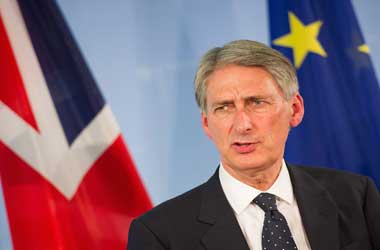
While orating at the Tory party conference in Birmingham, Hammond supposedly stressed that “there is technology becoming available […] I don’t claim to be an expert on it but the most obvious technology is blockchain,” when inquired how the authorities aim to attain smooth flow of trade subsequent to Brexit.
Both the United Kingdom (UK) and the EU have accepted to leave the border between the Northern Ireland and Republic of Ireland free of custom checks. However, the process of making it a reality is something being worked until now. Forbes reported in February.
The UK is expected to exit the EU Customs Union in about 6 months from now. Once that happens, there would be a need for border controls between Northern Ireland, which is under UK’s jurisdiction, and the Republic of Ireland, which has decided to stay in the EU. Even though London has evinced interest to ink an elaborate free trade deal with the continental bloc, it would incorporate regulations for classification of products’ countries of origin to guarantee compliance, Forbes comments.
The deployment of blockchain may well be an instrument for settling the Irish border problem, as the technology empowers merchandize movement to be recorded clearly and exclusive of changes. In August, logistics firm Maersk reported the introduction of a blockchain solution with IBM that comprises 94 organizations, with roughly 154 million shipping actions stored at the time.
Earlier in May, the National University of Ireland (NUI) Galway published a report suggesting the government to encourage blockchain further broadly across the country. The NUI recommends increasing blockchain consciousness and implementation, which can supposedly have a constructive influence on economic expansion and create a foundation for how the administration and Irish organizations conduct their business operations.